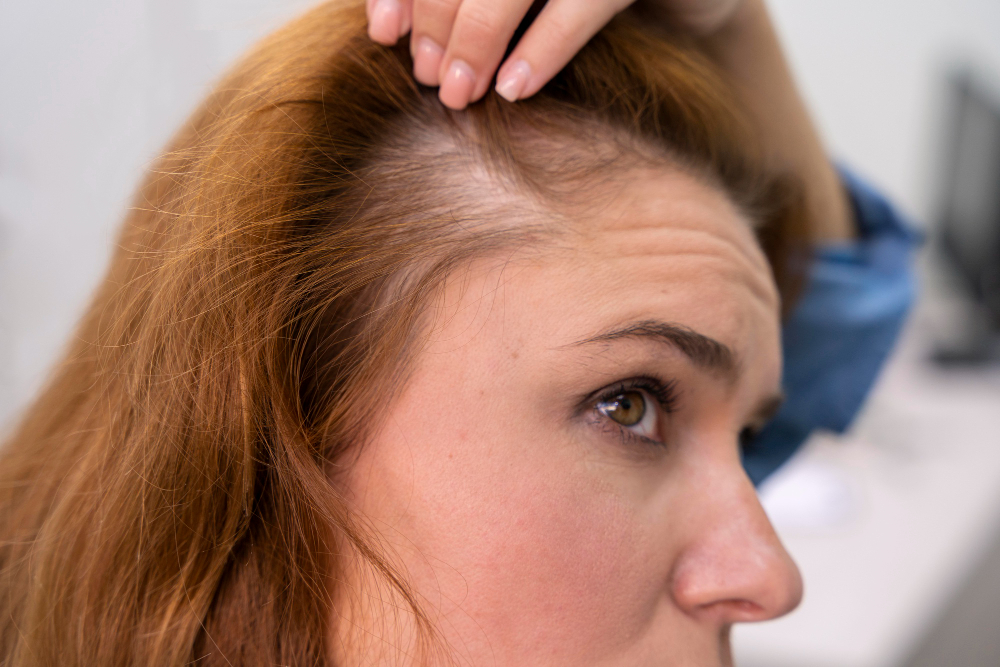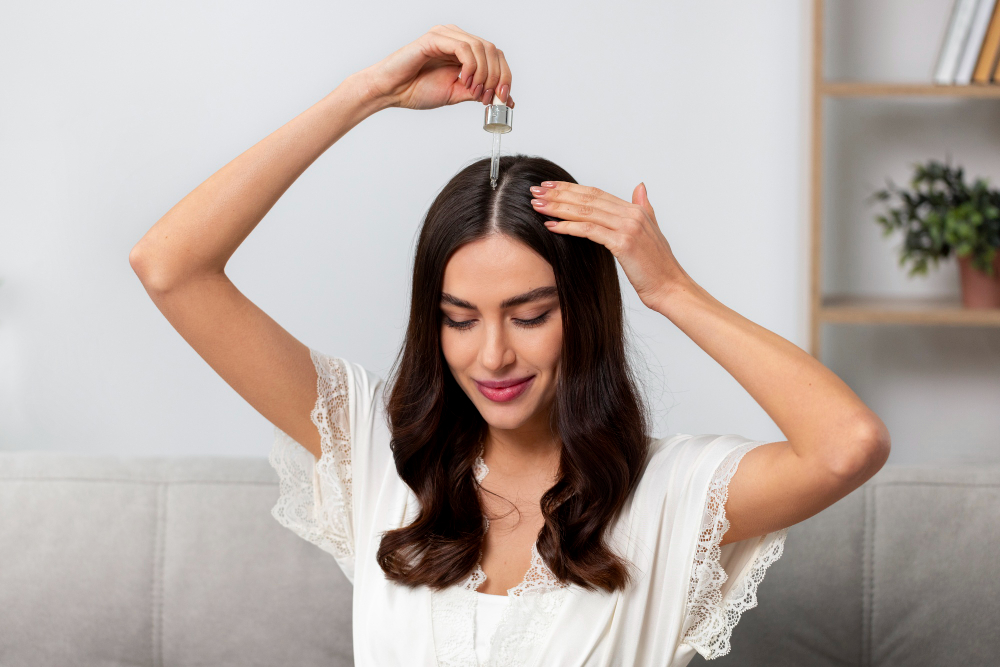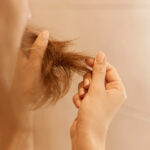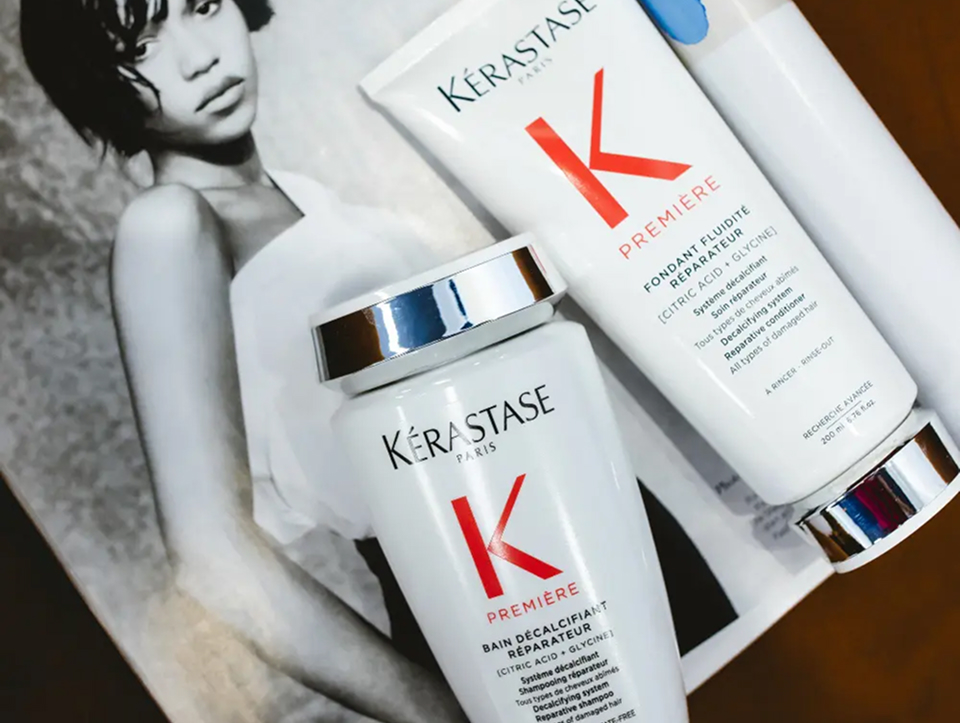Your hair’s health starts at the root. If you’re focusing on shampoos, conditioners, or styling products and skipping scalp care, you’re missing the foundation of healthy hair growth. In 2025, scalp care is no longer optional; it’s essential.
Searches for “scalp detox,” “best shampoo for scalp health,” and “scalp massage benefits” have skyrocketed. If you’ve noticed flaking, itching, oiliness, or thinning, your scalp might be trying to tell you something.
Let’s look at why scalp care matters more than ever, what happens when it’s neglected, and how you can build the perfect scalp-care routine for your hair type.
What Is Scalp Care?

Scalp care refers to the practices and products used to cleanse, nourish, and maintain the skin beneath your hair. Just like skincare, it involves removing buildup, balancing oil, soothing irritation, and keeping follicles clear for optimal hair growth.
Your scalp contains sebaceous (oil) glands, sweat glands, and thousands of follicles, each responsible for growing healthy strands of hair. But if these follicles get blocked—whether by dead skin, oil, pollution, or product residue hair growth can slow or stop altogether.
👉 Tip: If you’re not already using a dedicated scalp treatment, it’s time to start. It’s especially vital for curly or coily hair types, which are more prone to dryness and buildup.
Signs You’re Neglecting Your Scalp

A stressed-out scalp doesn’t stay silent. Watch for these common signs that your scalp needs more love:
- Persistent itching or flaking
- Unusual oiliness or dryness
- Dull, lifeless hair
- Slower growth or visible thinning
- Increased shedding after styling
Harsh products, environmental stressors, overwashing, or poor diet often trigger these symptoms. According to the Cleveland Clinic, conditions like seborrheic dermatitis (a major cause of dandruff) can worsen without targeted care.
✨ Do you know the difference between a healthy and unhealthy scalp? Learn more about it here.
Common Causes of Scalp Imbalance
Understanding what’s disrupting your scalp helps you treat it more effectively:
| Cause | Description |
|---|---|
| Product buildup | Frequent use of styling products or heavy conditioners can clog follicles and suffocate your scalp. |
| Extreme temperatures | Heat or cold can dry out or overstimulate the scalp’s oil glands. |
| Stress | Emotional stress is linked to flaking, sensitivity, and even hair loss. |
| Overwashing | Stripping the scalp of natural oils triggers rebound oiliness or irritation. |
| Harsh ingredients | Sulfates and alcohols in drugstore shampoos can dry and inflame sensitive skin. |
👉 Want to know what might be causing your scalp sensitivity? Read more here: Dealing With a Sensitive Scalp
10 Expert Tips to Level Up Your Scalp Care Routine

Here’s how to keep your scalp in top condition:
- Use a clarifying shampoo once weekly to break down residue (try one with salicylic acid).
- Match your shampoo to your scalp type—this guide can help.
- Apply a detoxifying scalp scrub or serum to lift buildup and soothe irritation.
- Massage your scalp for 3–5 minutes while shampooing to boost circulation. Try a scalp massage tool for extra stimulation.
- Avoid daily washing if your scalp is dry—opt for every 3–4 days with a gentle shampoo.
- Deep condition weekly using a nourishing hair mask.
- Eat a scalp-friendly diet rich in omega-3s, zinc, and antioxidants.
- Avoid silicone-heavy styling products that leave behind residue.
- Clean your brushes weekly to prevent bacterial buildup.
- Schedule regular salon visits to have a professional assess your scalp’s health.
👉 Bonus Tip: Try the Kerastase shampoo collection designed for scalp balancing and hydration.
👉 Worthy Read: How Often Should You Get a Scalp Treatment?
Why Product Buildup Is a Hidden Hair Killer

Even if you wash your hair regularly, product ingredients can cling to your scalp and cause:
- Dryness or irritation
- Flaky patches mistaken for dandruff
- Oily roots with dry ends
- Clogged follicles → slower growth and thinning
Combat this with targeted detox treatments and by switching to lightweight, clean formulas.
✍️ Learn more about hair damage repair
Can Scalp Issues Cause Hair Loss? The Answer Is Yes

Blocked follicles, inflammation, or untreated conditions like seborrheic dermatitis or psoriasis can disrupt the hair cycle and shrink the follicle. According to the American Academy of Dermatology, this leads to noticeable thinning or patchy loss.
If you’ve noticed persistent flaking or hair loss, consider a professional scalp analysis to identify underlying issues early.
Your Scalp Deserves the Spotlight
Your scalp is the root of everything. Caring for it means faster growth, fewer issues, and shinier, stronger strands. From choosing the right shampoo to incorporating regular treatments, scalp care is the missing link in most hair routines.
Book your professional scalp consultation with Haste Hair today and let your scalp (and your hair) thrive: Schedule your treatment now →
FAQ
Is scalp care necessary?
Yes. A clean, hydrated scalp leads to better hair growth, reduced shedding, and fewer issues like dandruff or oiliness.
How do I know if I have an oily or dry scalp?
If your roots get greasy within 1–2 days, you likely have an oily scalp. If you notice flaking, tightness, or itchiness after washing, it’s dry.
How often should I get a scalp treatment?
Once or twice a month is ideal, depending on your scalp’s condition.
Can scalp care help with dandruff?
Indeed. Scalp care addresses buildup and irritation that contribute to dandruff.









